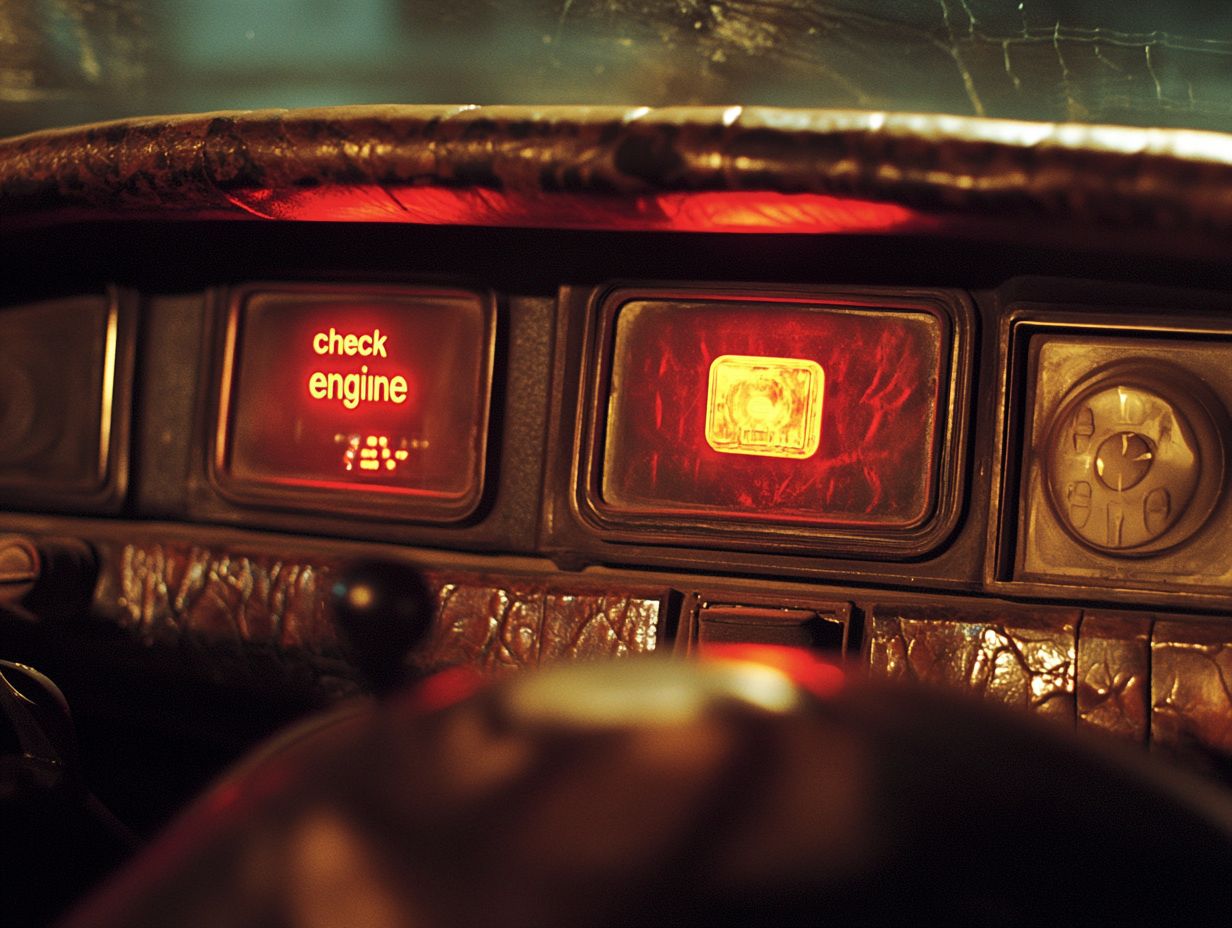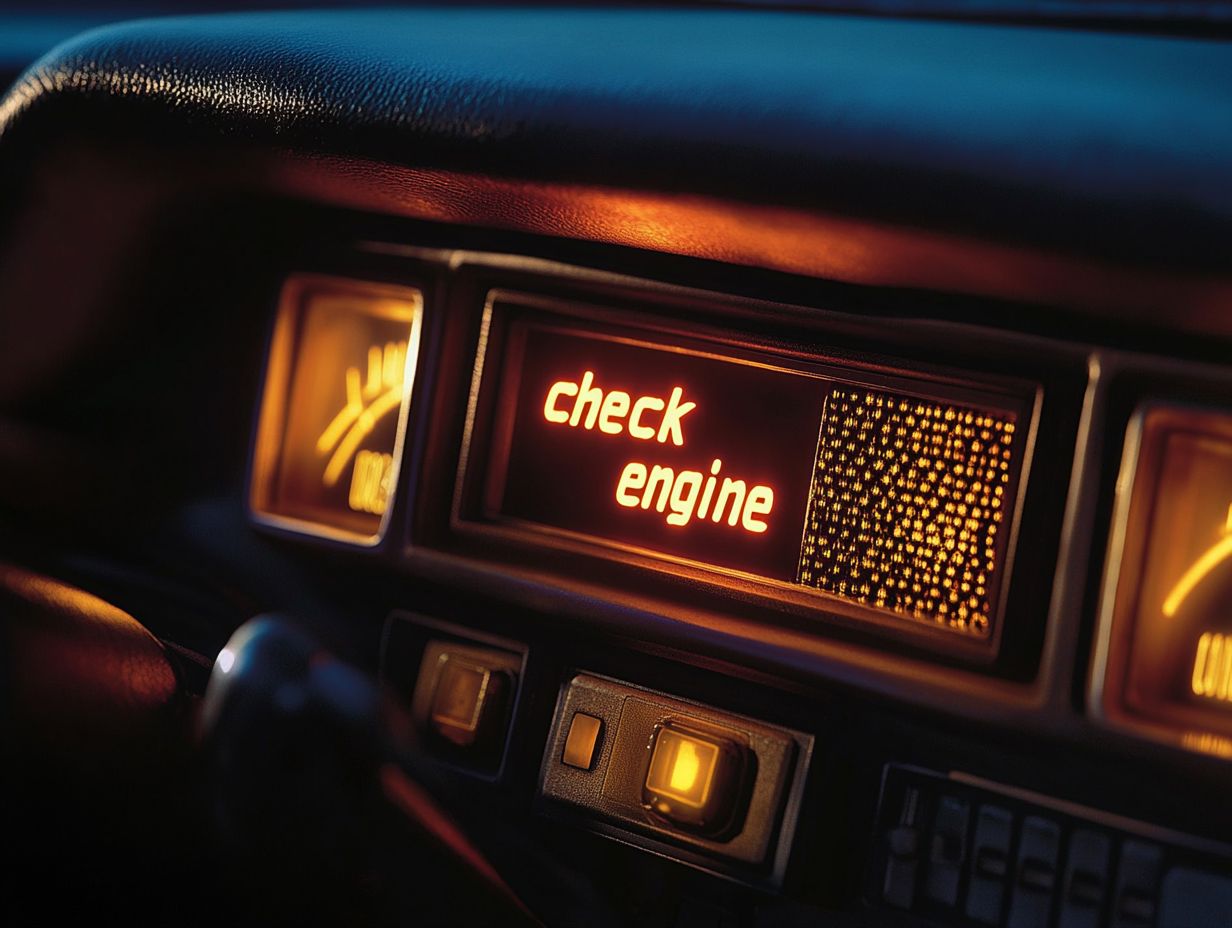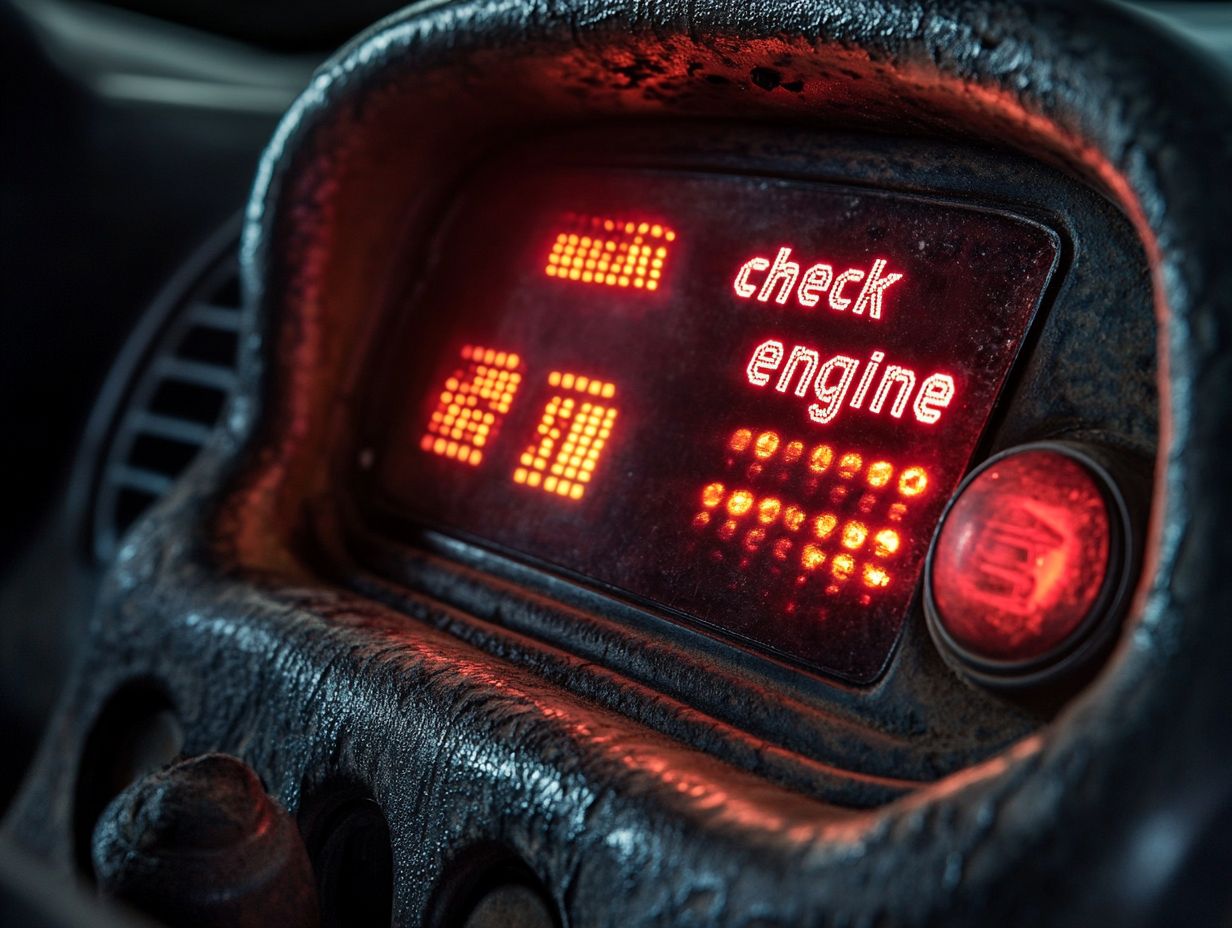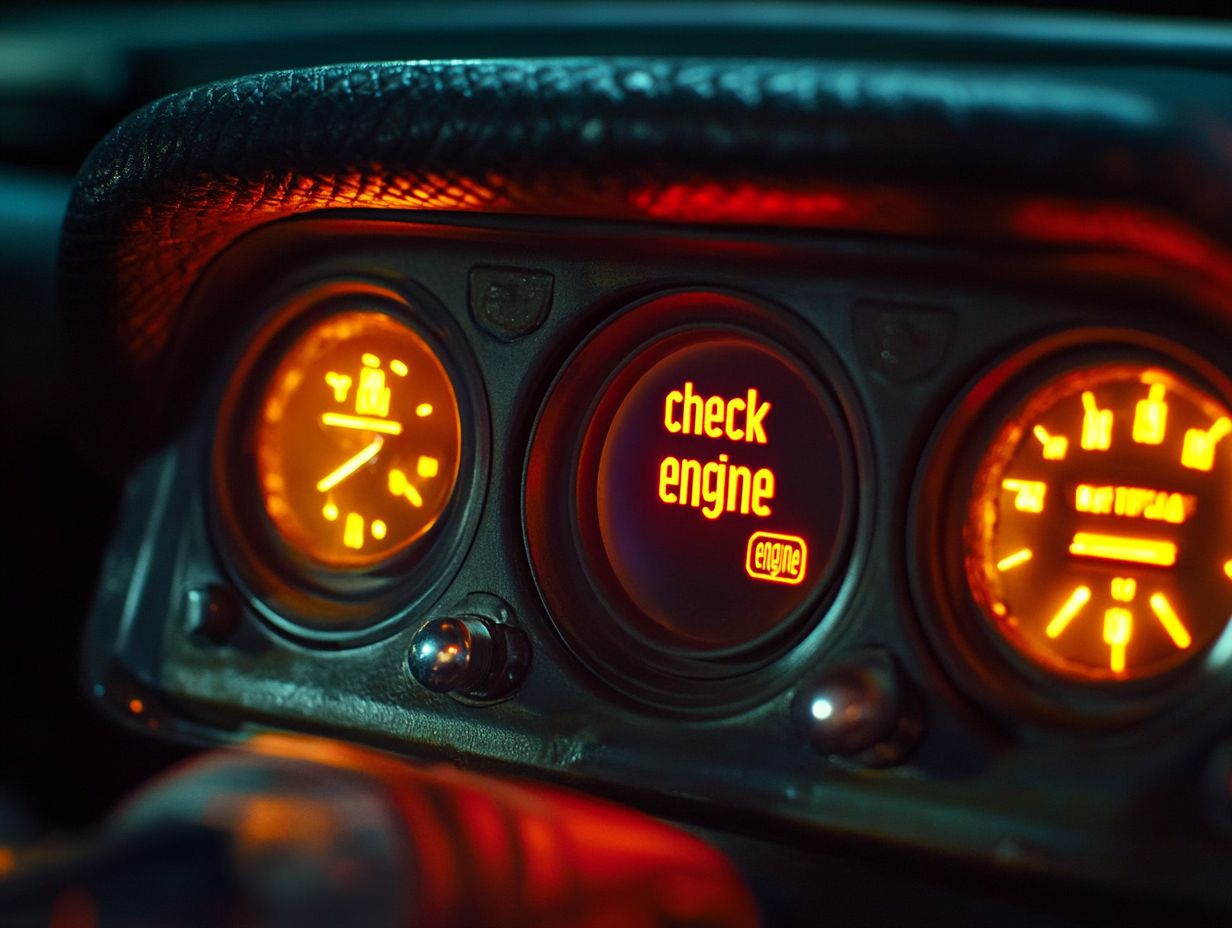5 Features to Avoid in Used Cars
Buying a used car can be a wise financial decision. However, it s crucial to navigate the potential pitfalls that come with it.
When searching for your next vehicle, be on the lookout for five key features to avoid. Signs of water damage, structural issues, high mileage, and a poor maintenance history are red flags that can greatly impact a car’s reliability and your budget.
Understanding how to identify these warning signs, the importance of a mechanic’s inspection, and strategies for negotiating a better price will empower you in your search. Explore the alternatives available to you if you encounter any of these issues.
Get ready to start your journey toward a smart used car purchase today!
Contents
- Key Takeaways:
- 1. Signs of Water Damage
- 2. Structural Damage
- 3. Mechanical Issues
- 4. High Mileage
- 5. Poor Maintenance History
- How to Spot These Features in a Used Car?
- Frequently Asked Questions
- What are the top 5 features to avoid in used cars?
- Why should I avoid high mileage when buying a used car?
- What is the risk of buying a used car with rust?
- Why should I be cautious of used cars that have had previous accidents?
- What are the potential problems with modified or aftermarket parts in a used car?
- How can I avoid purchasing a used car with these features?
Key Takeaways:

- Never buy used cars with water damage. Watch for musty smells and rust these could lead to costly repairs!
- Structural damage, such as frame or body damage, can compromise safety and functionality. Always inspect thoroughly before purchasing.
- Watch out for mechanical issues, like strange noises or vibrations, as they may indicate underlying problems requiring expensive repairs.
1. Signs of Water Damage
When considering a used car, spotting the signs of water damage is essential. It can profoundly affect the vehicle s value, safety, and performance.
Water damage often conceals itself, but familiarizing yourself with its indicators can help you sidestep costly repairs. Keep an eye out for common signs like musty odors, which could signal mold growth, or electrical issues stemming from water exposure.
To protect your purchase, obtain a vehicle history report from trusted sources like CARFAX. This helps you spot any major water damage incidents. Hiring a certified mechanic for inspection is invaluable; they can identify hidden water damage that might elude an untrained eye.
Consider the costs of potential repairs and explore financing options. Vehicles with a history of water damage might influence loan terms and interest rates.
2. Structural Damage
Identifying structural damage in a used car is crucial for potential buyers, as it significantly impacts both safety and resale value. Structural issues often stem from past accidents and might not be immediately apparent.
Having a certified mechanic conduct a thorough inspection is essential to uncover any hidden problems. Used car dealerships may gloss over these issues, so it s vital to remain vigilant. Understanding how well the car’s body holds up can provide you with leverage during price negotiations.
When assessing a vehicle, pay attention to frame alignment. Misalignment can be a red flag for previous collisions. Crumple zones designed for safety might not function as intended if compromised, jeopardizing passenger safety in future accidents.
Examine the quality of welds; poorly executed or rusted welds can indicate a rushed repair job with serious implications down the line.
Gathering this information can significantly bolster your negotiating position with dealerships. Being well-informed about the car’s structural condition can secure better financing options or discounts, ensuring a safer and more valuable purchase.
3. Mechanical Issues
Mechanical issues pose a significant concern when considering the purchase of a used car. They can lead to costly repairs and serious safety risks over time. It’s crucial to be aware of 5 things to consider before buying used vehicles, ranging from engine troubles to transmission failures.
Engage a certified mechanic for a thorough check-up to identify these issues before finalizing your purchase. Tackling these concerns early can help you steer clear of hefty monthly repair bills that could have been anticipated.
Understanding potential mechanical problems such as worn brakes, leaking fluids, or electrical system failures not only gives you the power to make informed decisions but also plays a vital role in evaluating financing options and extended warranties.
For example, if a vehicle turns out to need a new transmission or significant engine work, covering those repairs after the purchase could throw your financial plans into disarray, leading to unexpected debt.
Investing in an inspection can empower you to negotiate better deals and avoid future headaches! Don t skip this step your wallet will thank you later!
4. High Mileage

High mileage on a used car is a key factor to consider, as it can influence the vehicle’s longevity, maintenance needs, and overall value. As mileage increases, you may encounter potential performance issues that lead to more frequent repairs and maintenance, which can add up over time.
This is why taking advantage of vehicle history reports documents that show how the car was treated in the past is essential. They can reveal any past incidents that might jeopardize safety and dependability.
By cross-referencing this information with resources like Kelley Blue Book, you can assess realistic resale values and ensure your pricing decisions are well-informed. Getting a thorough check-up is crucial; it can uncover hidden issues from extensive use that might not be immediately visible but could significantly affect your future satisfaction with the vehicle.
5. Poor Maintenance History
A poor maintenance history can raise significant concerns for you as a potential buyer of used cars, often signaling the likelihood of future mechanical troubles and inflated repair costs. It s essential to carefully examine the vehicle history report for service records and any missed maintenance appointments that could lead to premature wear and tear.
Grasping this history is vital for making informed decisions about your financing options, as it directly influences insurance premiums and your overall ownership costs. Signs of neglect, like infrequent oil changes or overlooked fluid checks, can lead to hefty expenses later on.
Consider how these factors impact financing arrangements; lenders may perceive a poorly maintained vehicle as a higher risk. This can result in increased interest rates or even outright denial of financing.
When it comes time to negotiate the price, use any maintenance concerns uncovered in the vehicle history report to your advantage. Shining a light on these issues could help you secure a more favorable deal!
How to Spot These Features in a Used Car?
Spotting critical features like water damage, structural issues, and mechanical issues in a used car requires a discerning eye. Start by reviewing the vehicle history report, as this document is key to understanding past accidents and repairs. Additionally, be aware of the common mistakes when buying used cars to ensure a wise investment.
During the test drive, listen for any unusual noises and note how the car handles. Assess your overall comfort behind the wheel. Bringing in a certified mechanic for a thorough inspection is a smart move, ensuring that any hidden problems are detected before they become your headaches.
To elevate your inspection process, take a moment to examine both the exterior and interior for signs of wear and tear. Look out for scratches, rust, or any peculiar smells. Don t forget to open the doors and check if they line up properly, as misalignments could indicate previous accidents. Inside, scrutinize the dashboard, controls, and upholstery for both functionality and cleanliness.
While you test drive, pay close attention to the acceleration, braking, and the responsiveness of the steering. These elements will provide valuable insights into the vehicle’s overall condition. A well-prepared checklist can be your best friend, ensuring no detail goes unnoticed.
Afterward, have an open discussion with the mechanic about their findings. This conversation will give you the clarity and confidence you need to make an informed purchasing decision.
What Are the Red Flags to Look Out For?
When you’re evaluating a used car, keeping an eye out for red flags is crucial to avoid a regrettable investment. Additionally, when considering a new car, it’s important to know the features to prioritize in your new car to ensure you make a wise choice that won’t lead to unexpected expenses later on.
Start with a meticulous examination of both the exterior and interior for signs of wear or damage. Look for:
- Rust
- Dents
- Upholstery issues
Be wary of any mileage discrepancies, as they could hint at tampering.
During the test drive, tune in for any unusual noises. Pay attention to how responsive the brakes are and assess the overall driving experience to gauge the car s true condition.
Don t overlook the importance of obtaining a comprehensive vehicle history report. It can unveil past accidents or title issues, acting as a vital resource in your decision-making process.
Engaging a certified mechanic for a pre-purchase inspection is another smart move. A thorough inspection can uncover hidden problems you might miss at first glance, ensuring you re making a well-informed choice.
How Can a Mechanic Inspection Help?

A mechanic inspection is an essential step in your journey to buying a used car. It reveals hidden issues that might escape notice during a casual glance. When you have a certified mechanic conduct a thorough evaluation of the vehicle’s components think engine, transmission, brakes, and electrical systems you re setting the stage for a sound purchase.
This inspection can significantly affect your financing options and monthly payments. Any necessary repairs could add unexpected costs to your budget.
You ll also want to ensure that components like the suspension and tires are assessed for wear and tear. These factors can greatly influence the vehicle’s performance and safety. Grasping these details is crucial for making informed decisions, especially since unforeseen repairs can lead to hefty long-term expenses.
Selecting a reliable mechanic who specializes in used vehicles can streamline this process for you. Seek out professionals with glowing reviews and proper certifications to guarantee thoroughness.
By opting for a pre-purchase inspection, you can secure better financing terms and sidestep future headaches. Ultimately, this will allow you to drive away with confidence.
What Are the Potential Consequences of Ignoring These Features?
Ignoring critical features like water damage, structural concerns, or car problems when buying a used car can lead to significant long-term consequences. To debunk misconceptions, check out these 5 myths about buying used cars, as these consequences impact both your finances and safety.
You might find yourself facing unexpected repair bills that strain your budget and complicate your financing options. The resale value of a car with neglected issues often plummets, and insurance costs may rise depending on the vehicle’s condition and history.
These extra costs can create a ripple effect, making routine maintenance feel overwhelming or even unaffordable. A car that catches your eye may be hiding serious flaws that could lead to dangerous situations on the road, which is why considering 5 tips for buying a used luxury car is crucial.
When you encounter repair challenges, securing financing for future purchases might become a struggle. Lenders typically assess a vehicle’s overall condition and reliability. This situation doesn t just impact your immediate financial outlay; it also undermines your ability to navigate the overall vehicle ownership experience effectively. This underscores the importance of thoroughly inspecting every aspect before sealing the deal.
How Can a Buyer Negotiate a Better Price with These Features?
Successfully negotiating a better price for a used car often relies on your ability to leverage identified issues or negative features to your advantage. By being well-informed about the car’s history and current condition, including concerning aspects that might impact its overall value, you can refer to resources like Kelley Blue Book to justify your pricing decisions.
Understanding the potential costs of repairs gives you a distinct advantage in discussions. This knowledge allows you to secure better financing options or a more favorable trade-in value.
Therefore, it’s essential for you to conduct thorough research and compile relevant information before entering negotiations. This means being aware not only of any mechanical problems but also utilizing vehicle history reports to unveil past accidents or maintenance records.
When you approach the seller, communicate your findings clearly and assertively. Present repair estimates alongside valuation tools to create a compelling argument that supports a lower offer.
By demonstrating your preparedness and a solid understanding of the vehicle’s worth, you can significantly enhance your chances of achieving a fairer deal.
What Are the Alternatives to Buying a Used Car with These Features?
When you encounter a used car with concerning features like water damage or mechanical problems, you should quickly consider better, more reliable alternatives that offer peace of mind. Choosing a new car involves knowing what to look for, including the top 5 features to look for, and it can be a wise investment, as it often comes with warranty options that help mitigate potential repair costs.
Certified pre-owned vehicles present an appealing compromise, providing lower depreciation alongside the assurance of thorough inspections and dependable financing options.
In addition to these benefits, new cars typically boast the latest technology and safety advancements, significantly enhancing your driving experience. If you re leaning towards certified pre-owned options, you ll appreciate that these vehicles usually come with a manufacturer-backed warranty, giving you extra security against unexpected repairs.
Various financing strategies, such as leasing or low-interest loans, can further enhance the appeal of these alternatives, making them more accessible. By considering the total cost of ownership including maintenance and potential depreciation you can make an informed decision that aligns with your financial goals and personal needs.
Frequently Asked Questions

What are the top 5 features to avoid in used cars?
The top 5 features to avoid in used cars are:
- High mileage
- Rust
- Mechanical or electrical problems
- Previous accidents
- Modified or aftermarket parts.
Why should I avoid high mileage when buying a used car?
High mileage can indicate that the car has been heavily used and may have more wear and tear on its components. This could lead to potential mechanical or electrical problems in the future, making it a riskier purchase.
Make sure you do your homework before buying a car to ensure you get the best deal possible!
What is the risk of buying a used car with rust?
Rust shows that a car might have been exposed to harsh weather or poor maintenance. This corrosion can weaken the car’s strength and lead to costly repairs down the road.
Why should I be cautious of used cars that have had previous accidents?
A car that s been in an accident may have hidden damage. This could jeopardize your safety and the car’s performance.
Cars with accident history often have a lower resale value, too.
What are the potential problems with modified or aftermarket parts in a used car?
Aftermarket parts might not match the quality of original parts. This can affect performance and make it tricky to find replacements later.
How can I avoid purchasing a used car with these features?
Before you buy a used car, give it a good look and take it for a spin! Don t risk your hard-earned money! Always check the vehicle history report first.
It’s also smart to have a mechanic inspect the car before making a final decision.






